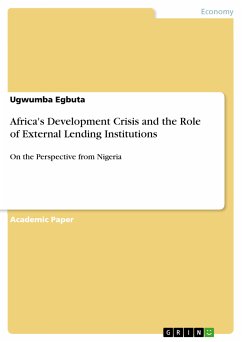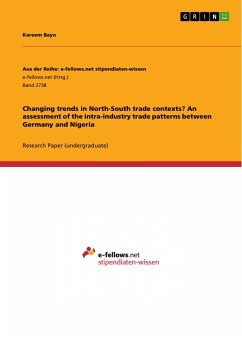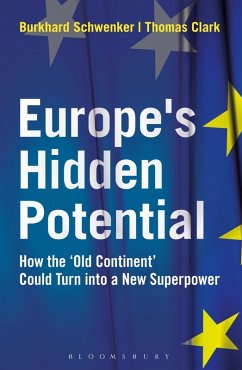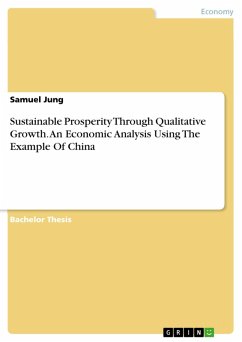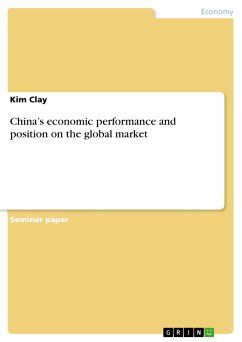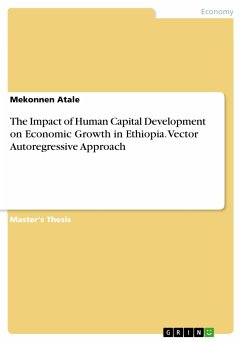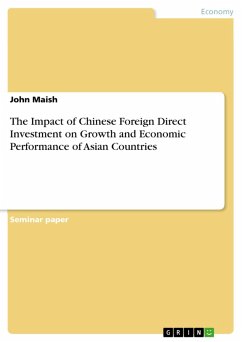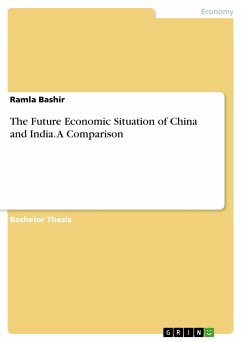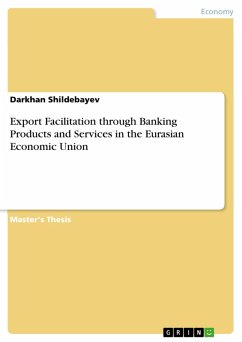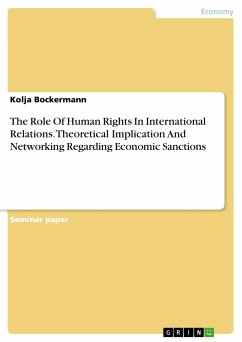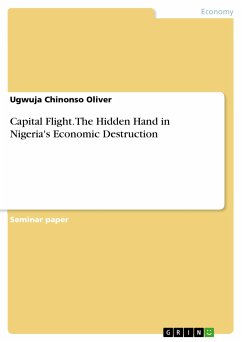
Capital Flight. The Hidden Hand in Nigeria's Economic Destruction (eBook, PDF)
Sofort per Download lieferbar
Statt: 17,95 €**
15,99 €
inkl. MwSt. und vom Verlag festgesetzt.
**Preis der gedruckten Ausgabe (Broschiertes Buch)
Alle Infos zum eBook verschenkenWeitere Ausgaben:

PAYBACK Punkte
0 °P sammeln!
Seminar paper from the year 2019 in the subject Economics - International Economic Relations, University of Nigeria, course: ECONOMICS, language: English, abstract: This paper deals with the composition and constituents of capital flights, its implications as well as theoretical expositions and praxis. Virtually, all macroeconomic sage, as well as, most scintillating economists stress that Nigeria's economic somnambulism and financial crunch is consequent upon the following; dwindling of oil price in the international market, undiversified economy, unchecked inflation, high rate of unemploymen...
Seminar paper from the year 2019 in the subject Economics - International Economic Relations, University of Nigeria, course: ECONOMICS, language: English, abstract: This paper deals with the composition and constituents of capital flights, its implications as well as theoretical expositions and praxis. Virtually, all macroeconomic sage, as well as, most scintillating economists stress that Nigeria's economic somnambulism and financial crunch is consequent upon the following; dwindling of oil price in the international market, undiversified economy, unchecked inflation, high rate of unemployment and a little emphasis on the adverse effect of exchange rate volatility on economic growth, without a clear consideration of how capital flight contributes to the economic mess in Nigeria. Put differently, many scholars have actually exposed how the aforementioned macroeconomic variables are responsible for economic melt-down, but, the backwash of illegal financial exodus (capital flight) on the effeteness of Nigerian economy appears to have been jettisoned. Capital flight, no doubt, had remained conceptually an elusive phenomenon. This is because it seems unclear what differentiates capital flight from normal capital outflows. So, capital flight is one of the terms that suffer from problems of definition and is therefore prone to various interpretations and applications. In fact, so confused is the term that many researchers in international economics, in attempting to give empirical support become guilty of the concept and as a result thrive on barefoot empiricism and outlandish intellectual circumvention.
Dieser Download kann aus rechtlichen Gründen nur mit Rechnungsadresse in A, B, BG, CY, CZ, D, DK, EW, E, FIN, F, GR, HR, H, IRL, I, LT, L, LR, M, NL, PL, P, R, S, SLO, SK ausgeliefert werden.




